In today's digital world, Facebook advertising is an essential tool for any e-commerce entrepreneur. This guide provides you with the necessary information and steps to effectively utilize Facebook advertising for your Shopify store. In this instructional text, we clarify basic aspects of Facebook advertising and show you how to implement these strategies to increase your sales.
Key Insights
Facebook advertising allows you to target precise audiences, unlike many other ad networks. You need to create a Facebook page before you can run ads. Various campaign objectives can help you drive both traffic to your website and generate sales.
Step-by-Step Guide
Step 1: Create a Facebook Page
Before you can start with Facebook advertising, you need a Facebook page for your store. Go to the points in your Facebook profile and select the option "Page" at the top. Then you can create your Facebook page by setting the page name; in our example, we call the page "Best Dropshipping Store".
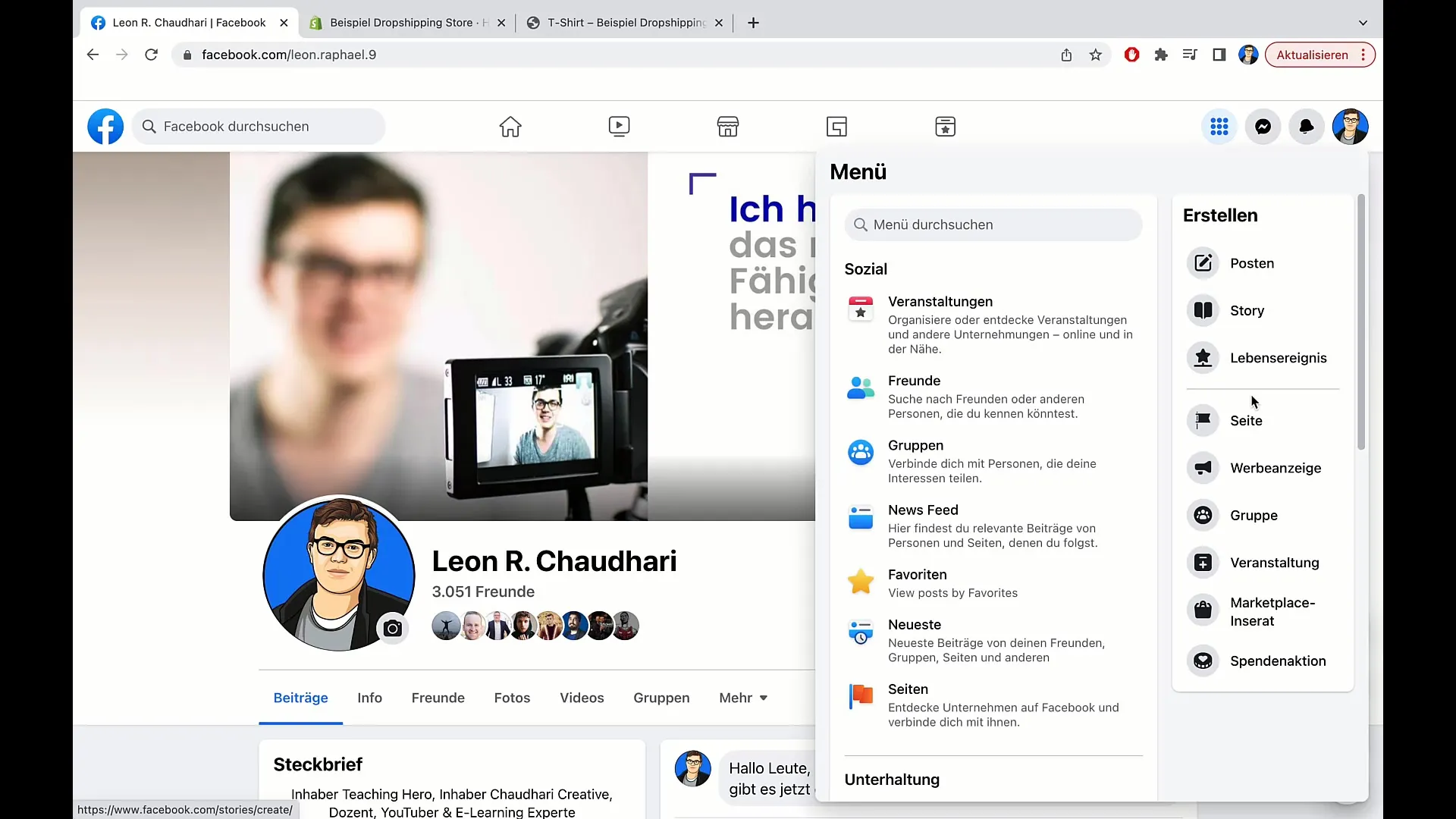
Fill out the category and description to explain to your customers what your store is about. Once you have completed this, click on "Create Page" and your page is ready.
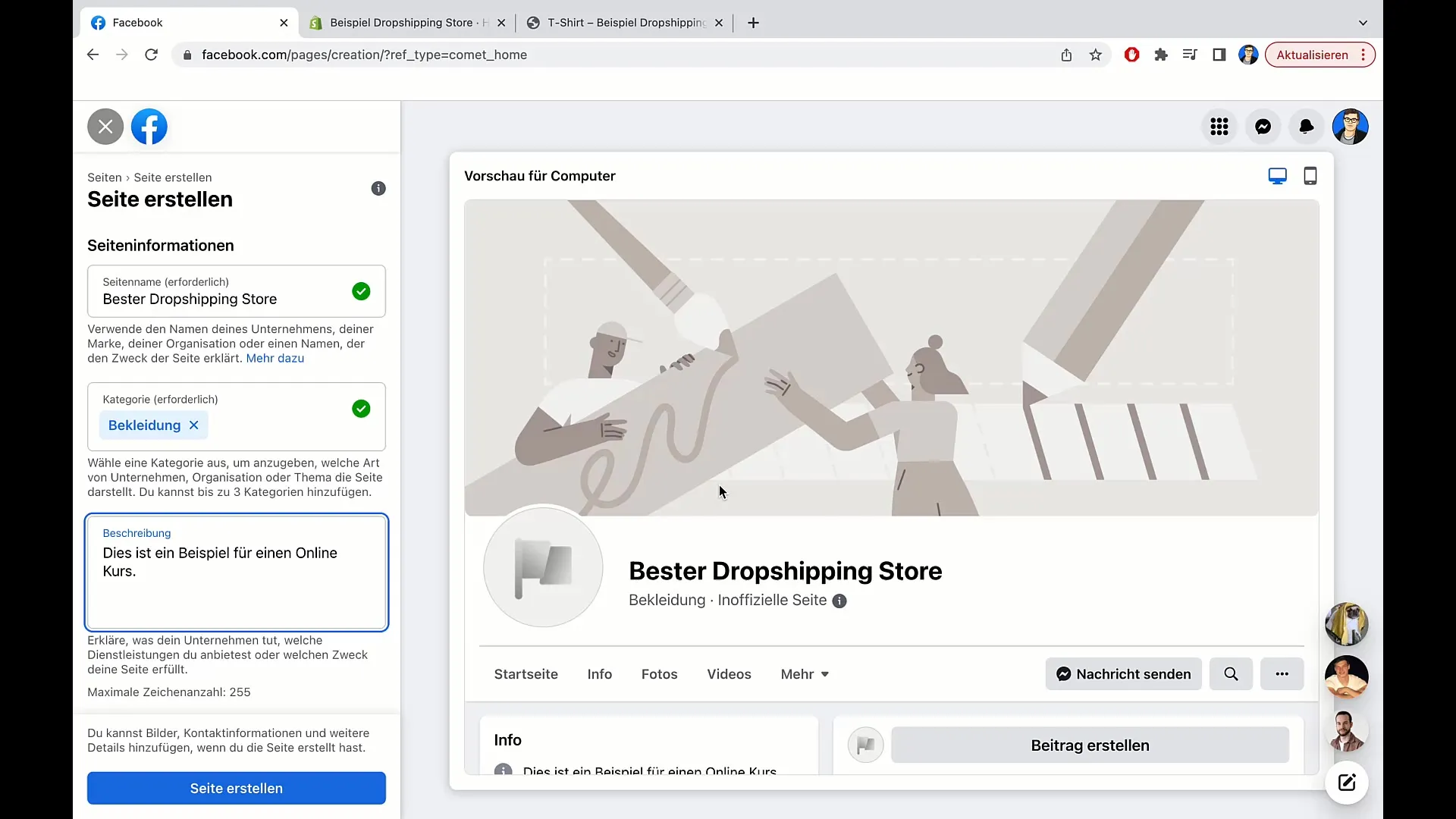
Step 2: Access to Facebook Ads Manager
To configure your ads, go back to your Facebook profile and click on "Ad Center". You will be redirected to Facebook Ads Manager. Here, you need to provide some information that Facebook requires to activate your account.
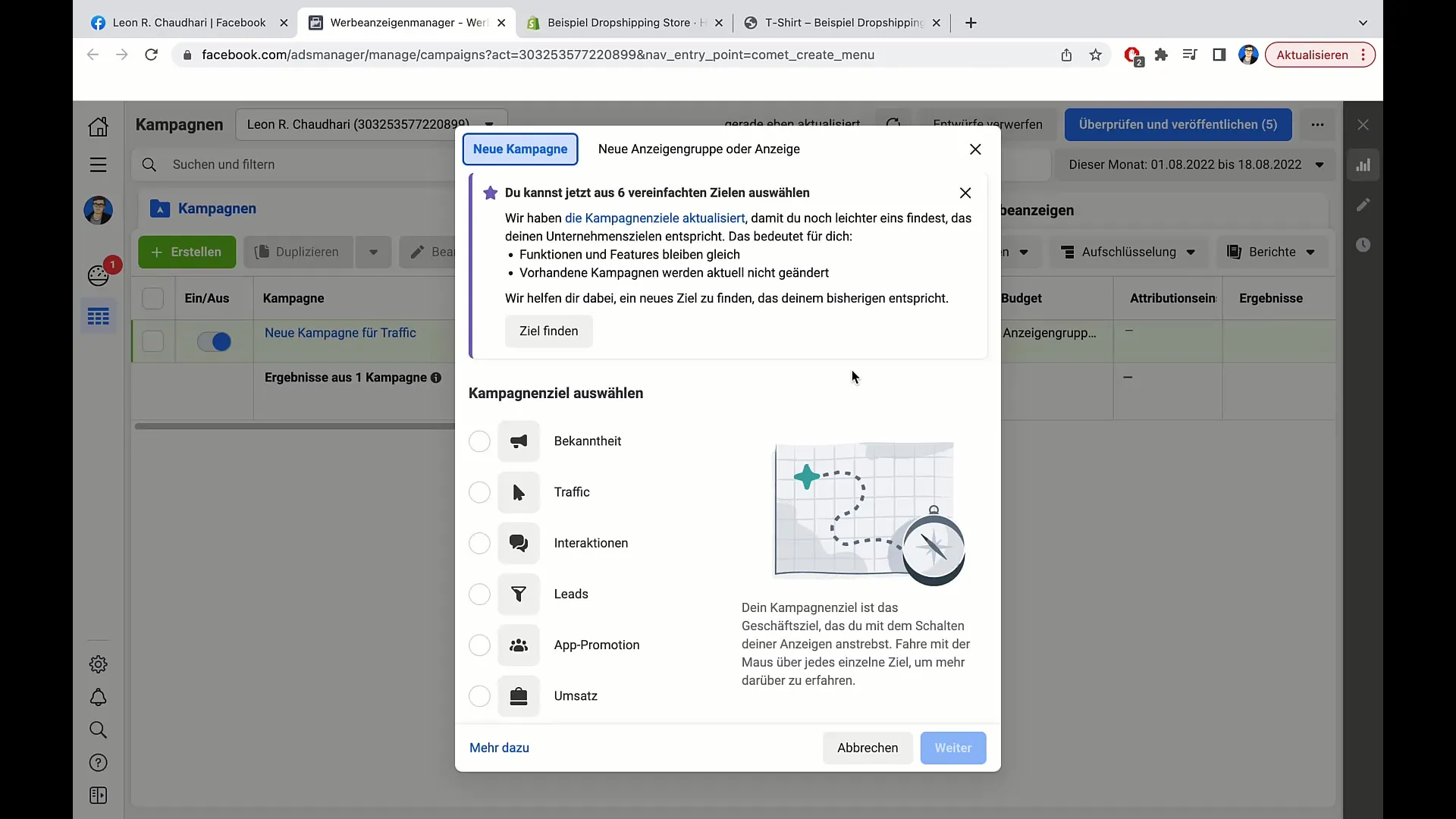
Step 3: Choose Campaign Objective
In Facebook advertising, there are various campaign objectives. Think of the ad as a kind of umbrella under which various ads are grouped. First, choose the objective, such as traffic, awareness, or sales.
The traffic objective is particularly important as it helps direct visitors to your website or specific product pages. Awareness advertising aims to increase the visibility of your brand.
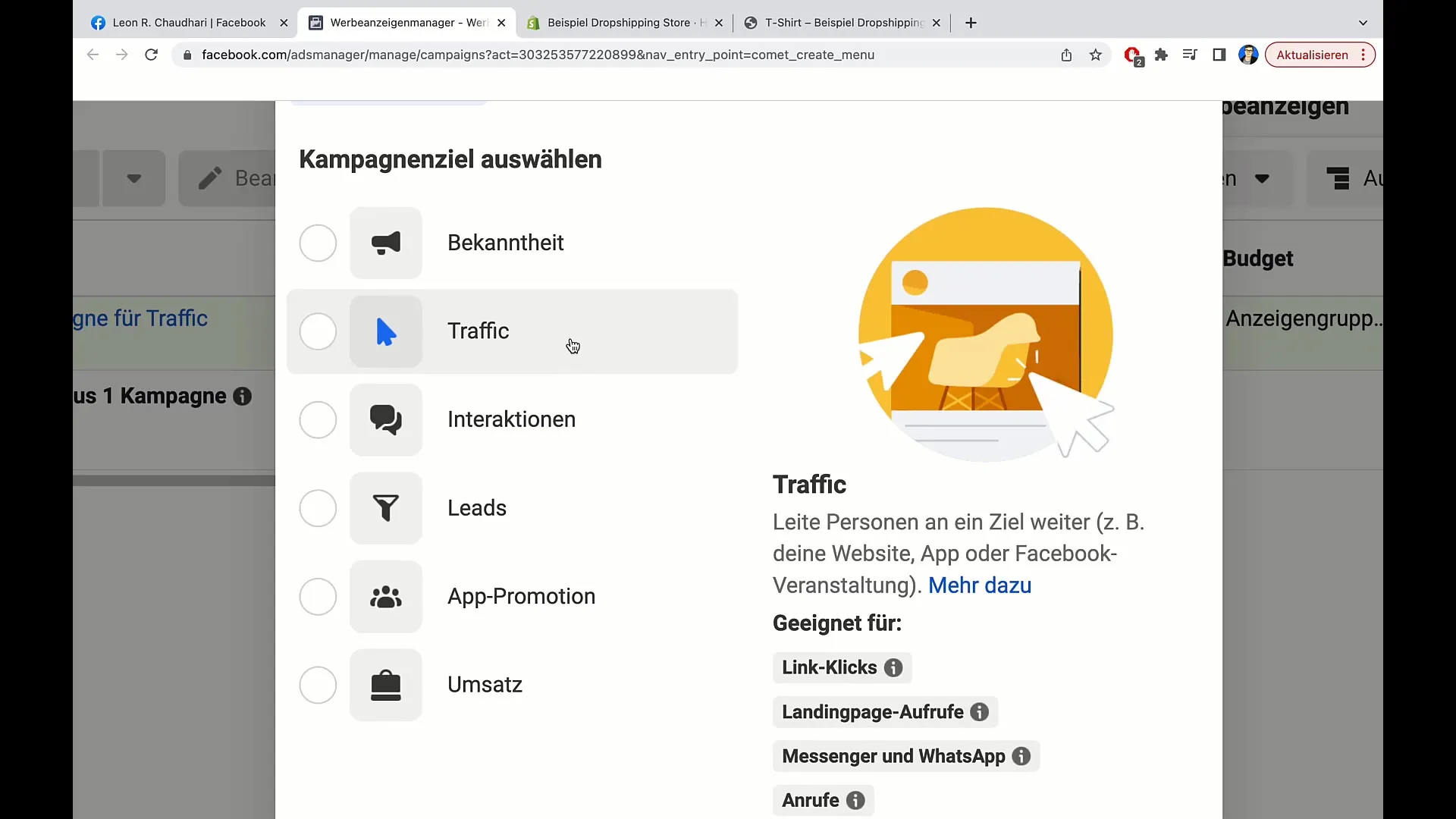
Step 4: Define Your Target Audience
After selecting the campaign objective, define the target audience you want to reach. Facebook offers precise targeting options so you can specify exactly who should see your ads.
Consider what demographic characteristics, interests, and behaviors you want to target to ensure that your ads reach the right people.
Step 5: Design Your Ad
Now comes the creative part. Create the actual ad. Be sure to use appealing images and texts that resonate with your target audience.
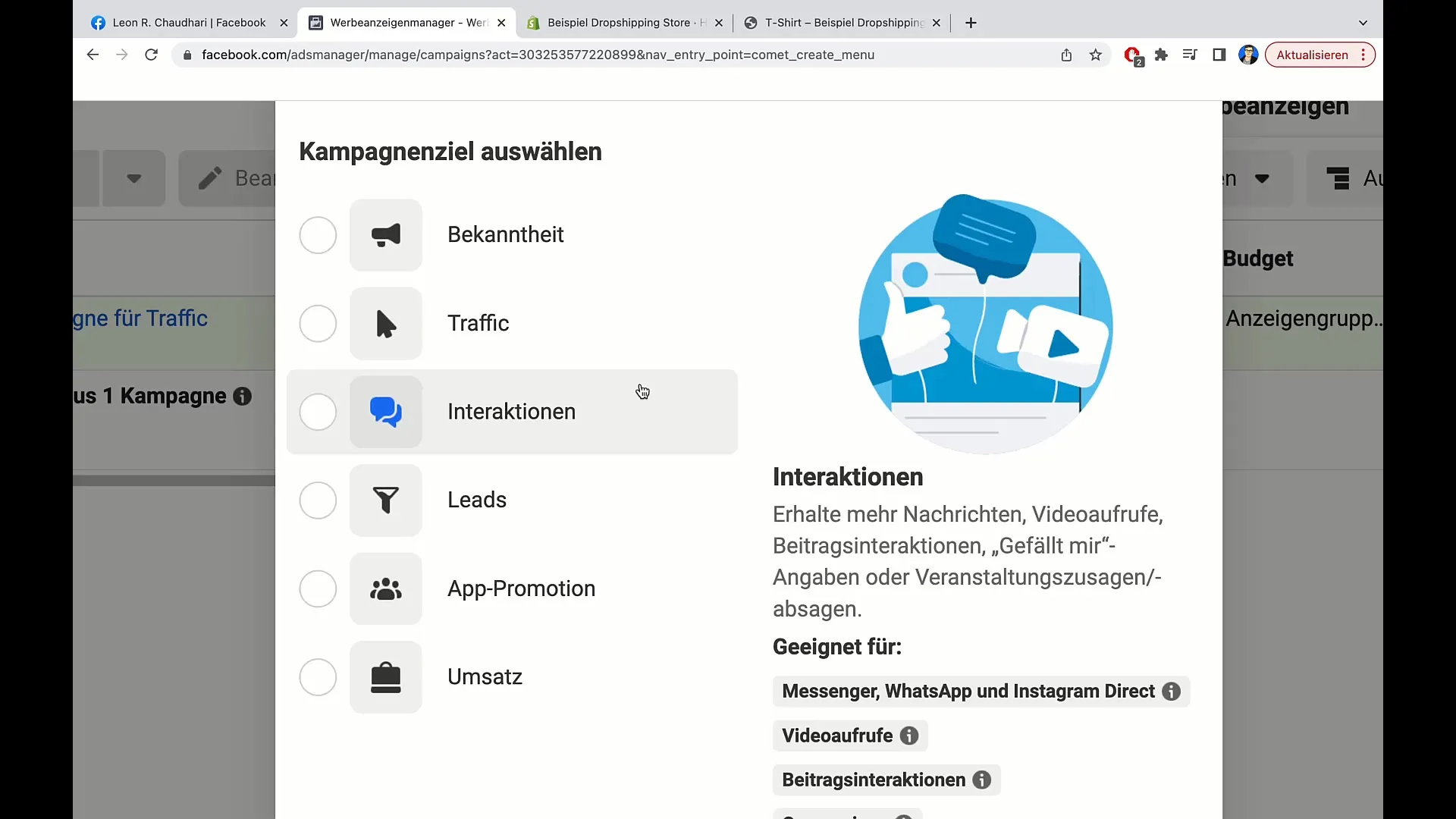
You can use emojis and call-to-actions to encourage interaction. Each ad should be clear and engaging to capture the user's attention.
Step 6: Specify Budget and Duration
After creating the ad, you need to set a budget. You can set a daily budget or a total budget for the campaign period. Make sure to choose a budget that aligns with your marketing goals and is realistic at the same time.
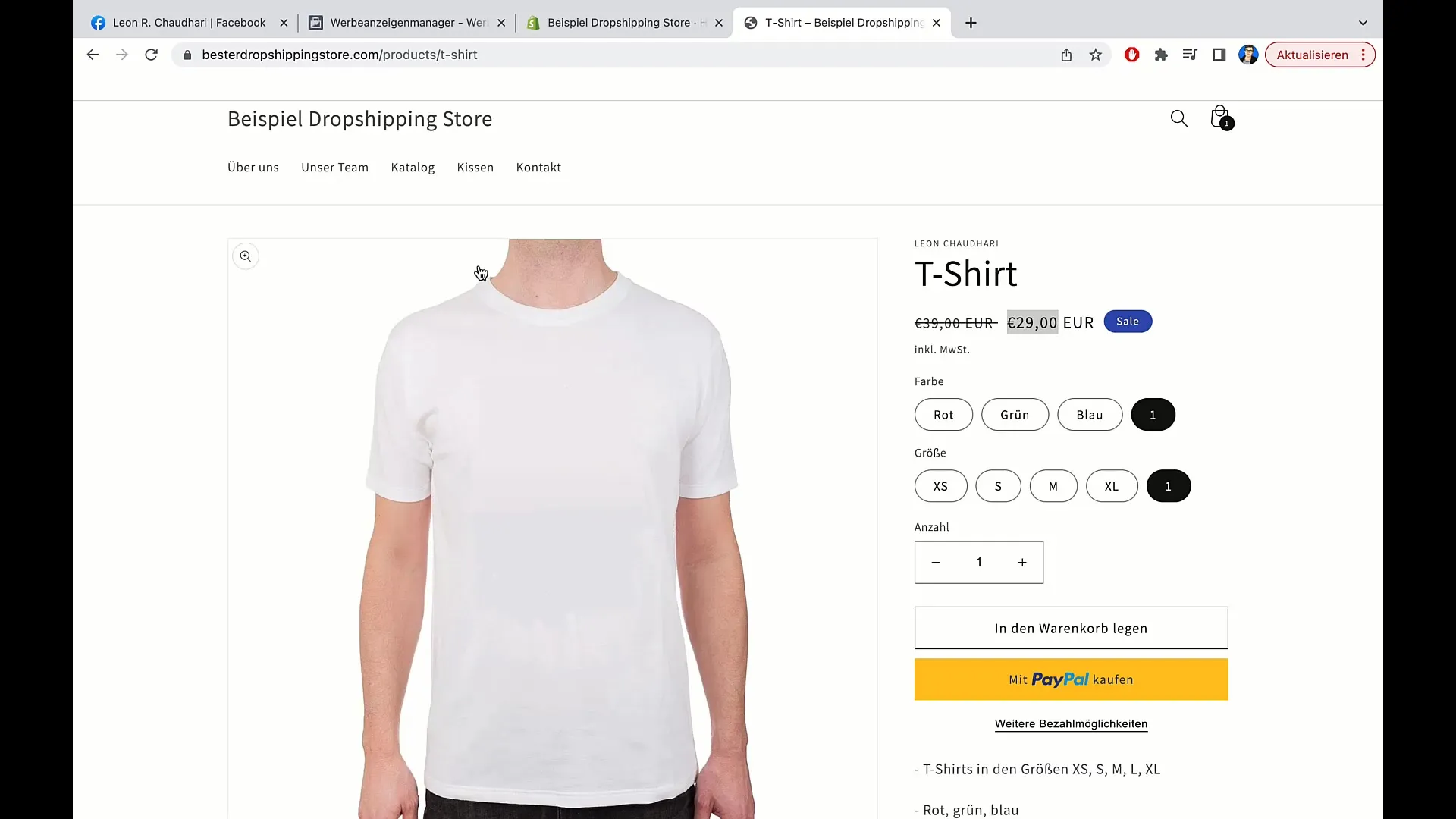
Step 7: Monitor and Optimize Campaign Performance
After your ads have been running, it's important to monitor their performance. Facebook provides detailed analytics on interactions and the effectiveness of your ads.
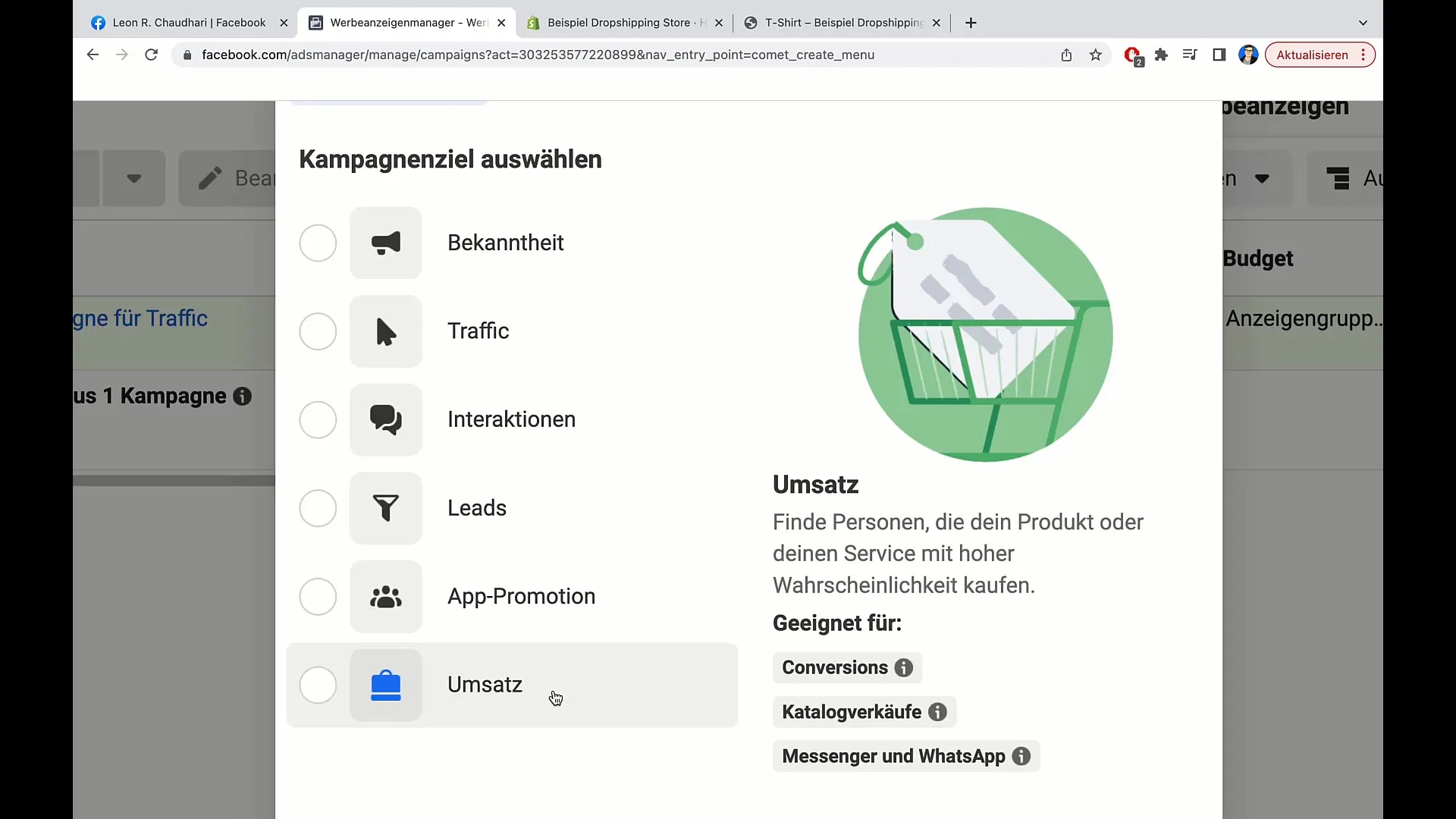
Analyze this data to determine if adjustments are needed – for example, by changing the target audience or budgets. The more comprehensive you observe and optimize your results, the more successful you will be.
Summary
In this guide, you have learned how to create a Facebook page, choose your campaign objective, define your target audience, and design your ad. Remember to keep an eye on the performance of your campaigns in order to continuously improve them.
Frequently Asked Questions
How do I create a Facebook page for my store?Go to the sections in your Facebook profile, select "Page," and follow the instructions to create your page.
What are the key campaign objectives in Facebook advertising?Key campaign objectives include traffic, awareness, and sales, depending on your specific goal.
How can I achieve precise targeting for my ads?By selecting demographic characteristics, interests, and behaviors in your target audience settings.
How often should I review the performance of my ads?It is advisable to regularly review performance in order to make adjustments early on.
What can I do if my ads are not performing well?Analyze the target audience and the creativity of your ads and optimize them based on the data received.


